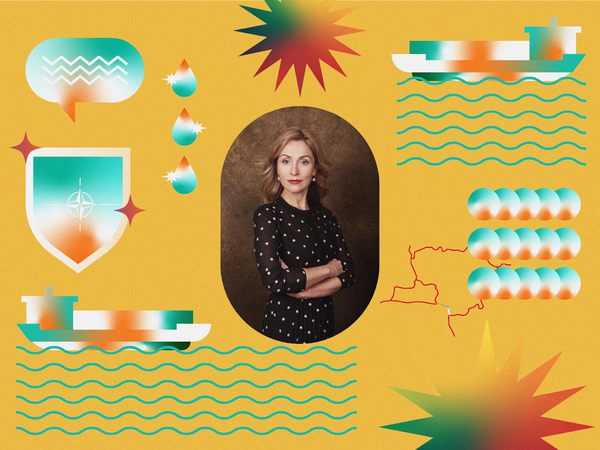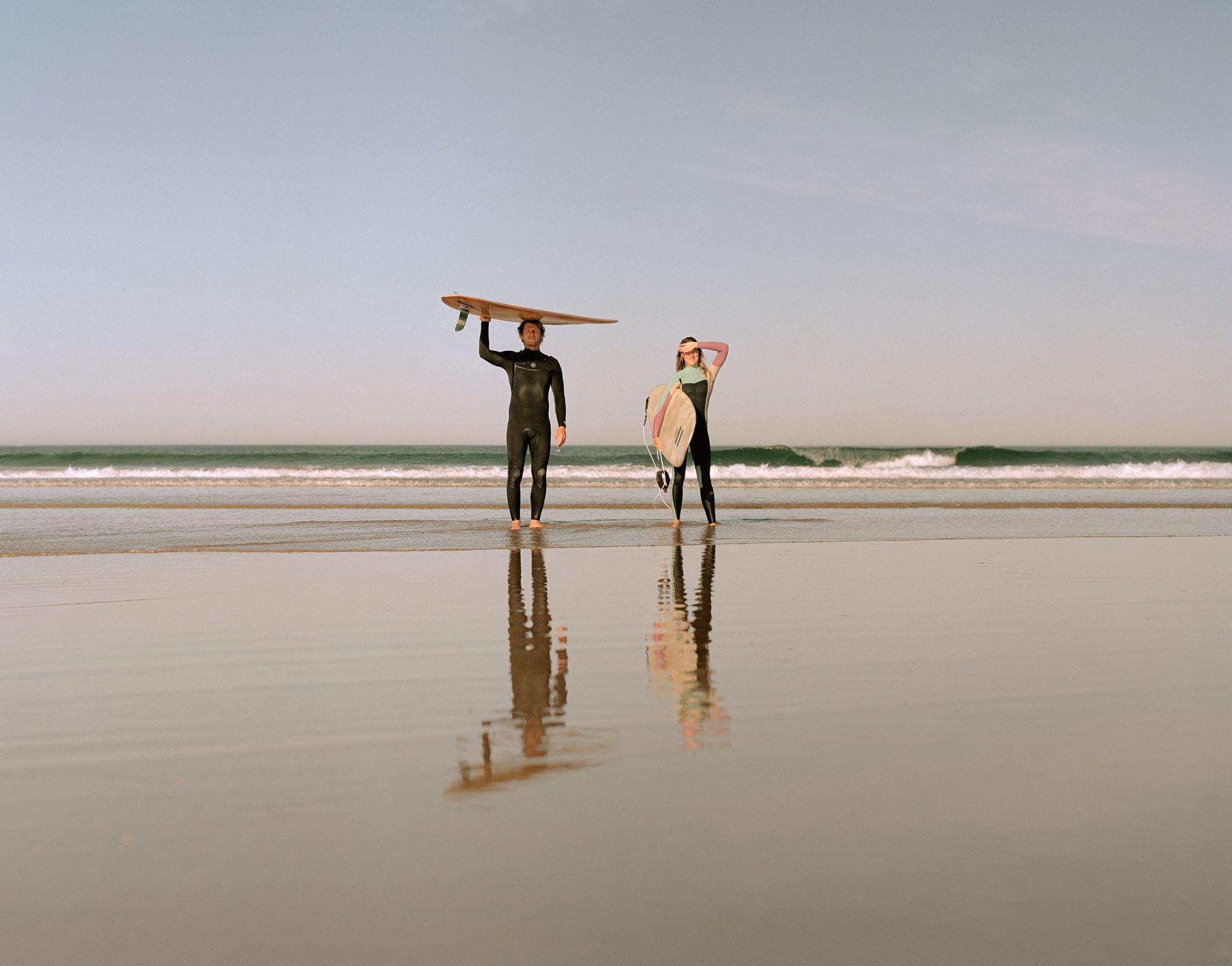Wetsuits drying in the windows, surfboards propped up on the steps, five-year-olds eating ice cream at midnight in their swimsuits, and blossoming Jacaranda trees—we’re 15 km south of Lisbon, in Costa da Caparica, a quaint little town on the Portuguese ocean coast. This is where Dávid Liptay and Anna Liptay-Baráth, the founders behind Blitz Pizza, settled down and found their new home, leaving not only Budapest but their whole home country behind in search of a new life—one that is full of waves and pizza.
This article was published in print in Hype&Hyper 2022/2.
Concept and realisation by Orsolya Gyöngy
Photos by Balázs Mohai
The story of Blitz Pizza started during David’s university days, when he spent hours by the oven in his flat during friendly gatherings, making pizzas based on his own recipes to feed the party crowd. At the time, he had no intention of taking his pizza nights to the next level, however, after a while, Dave’s pizza still outgrew his house parties and took its rightful place on Budapest’s blooming street food scene. Running a pizza food truck with a wood-fired oven is no easy task, but as he puts it, it’s not an “evolutionary dead-end” either—the recipe worked, and Blitz quickly found its way into the hearts of the residents of Budapest.
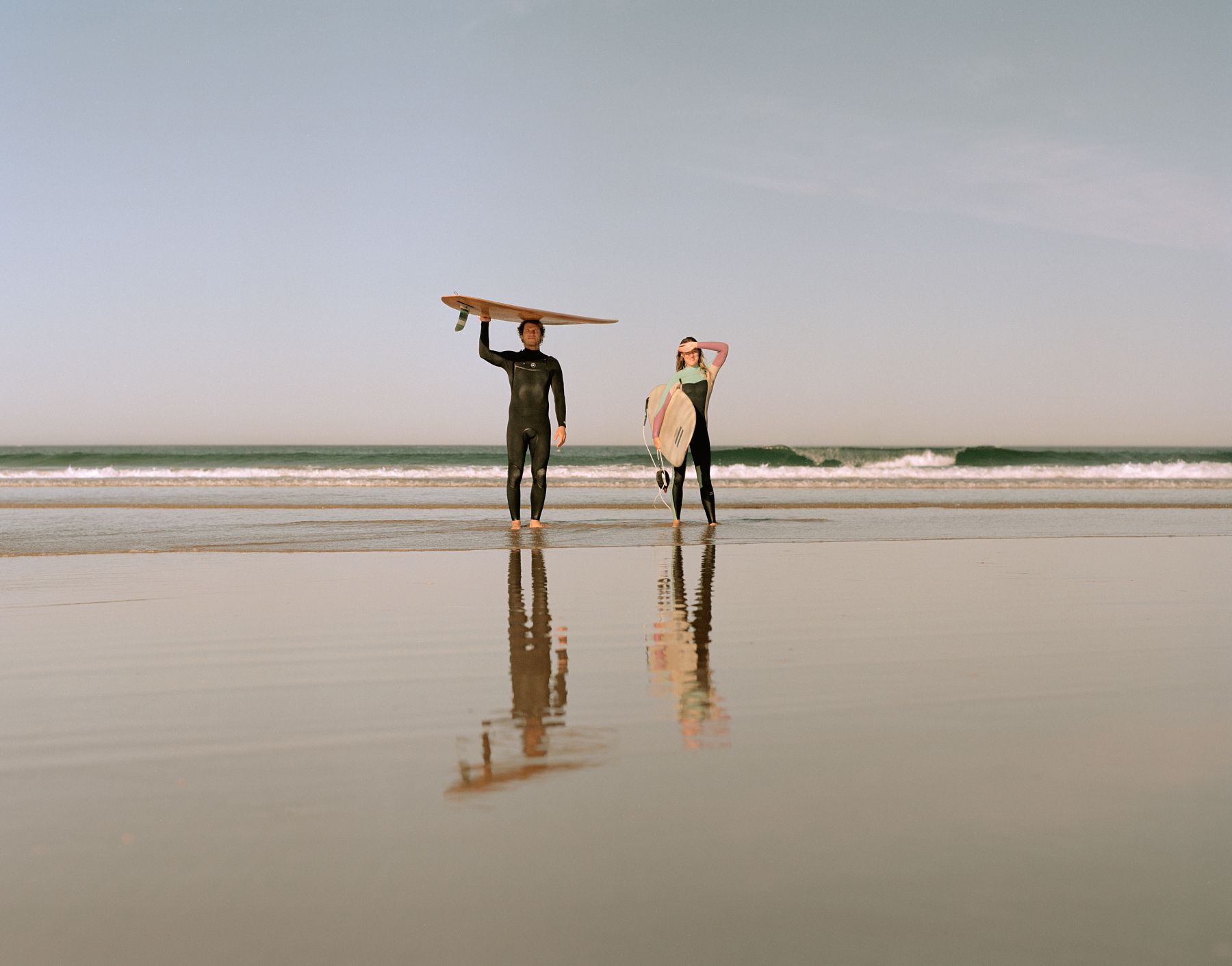
David’s hobby organically grew into a business, the business into a brand, and the brand into a success story that even the pandemic couldn’t put an end to. When restaurants were forced to close from one day to the next, Anna and Dávid immediately looked for innovative solutions: the first DIY pizza set they designed for delivery was born from leftover ingredients in the kitchen, and during lockdowns, half the city made their quarantine menus from Blitz pizza dough. They didn’t leave the oven unused either, and during the third wave of the pandemic, the line of Blitz’s high-quality frozen pizza was launched, which also added to the lives of many during the difficult months. Blitz has always been more of a start-up than a restaurant—it’s a service, a solution to a problem, which is why the brand has always been able to stay flexible and adapt to changing customer needs.
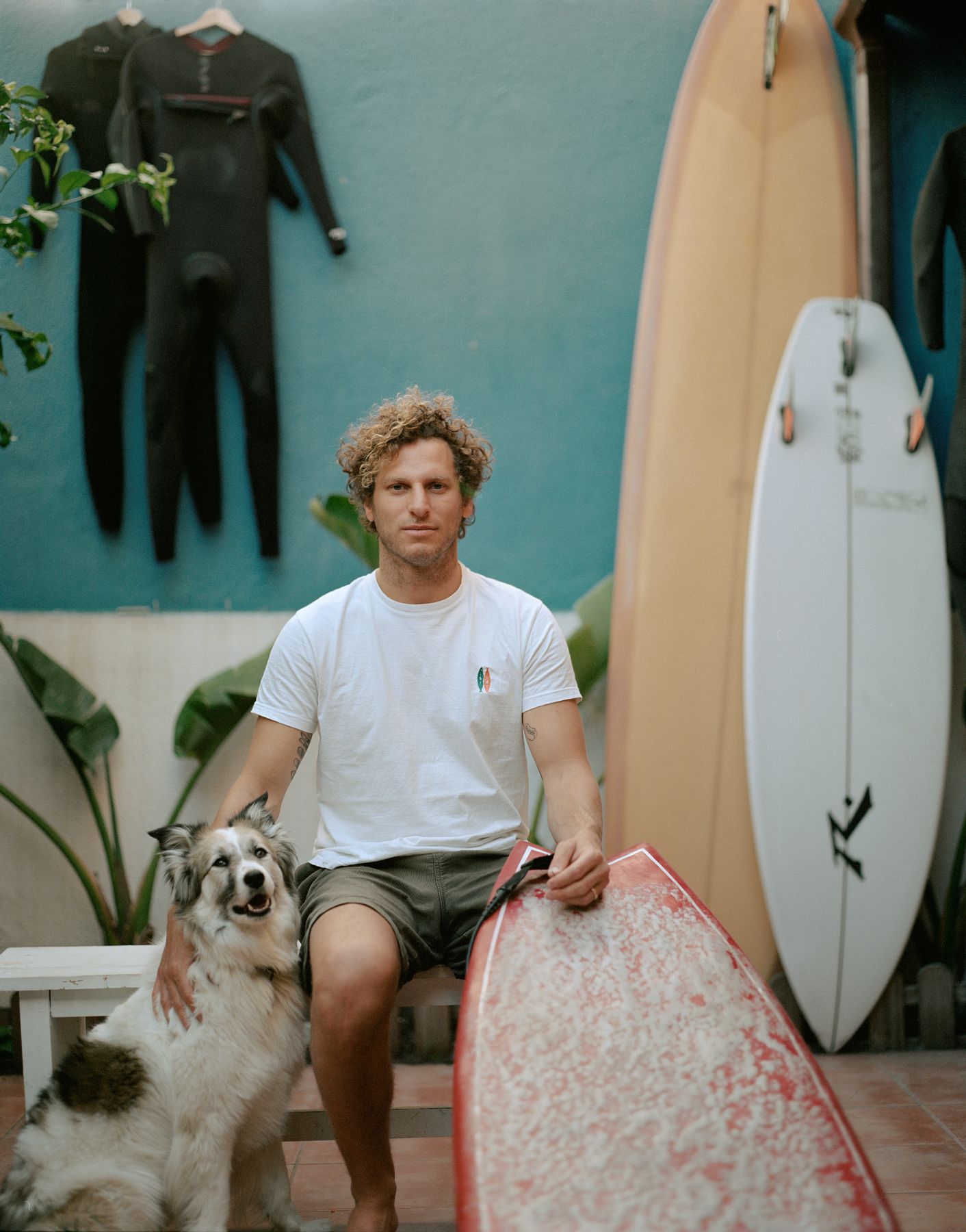
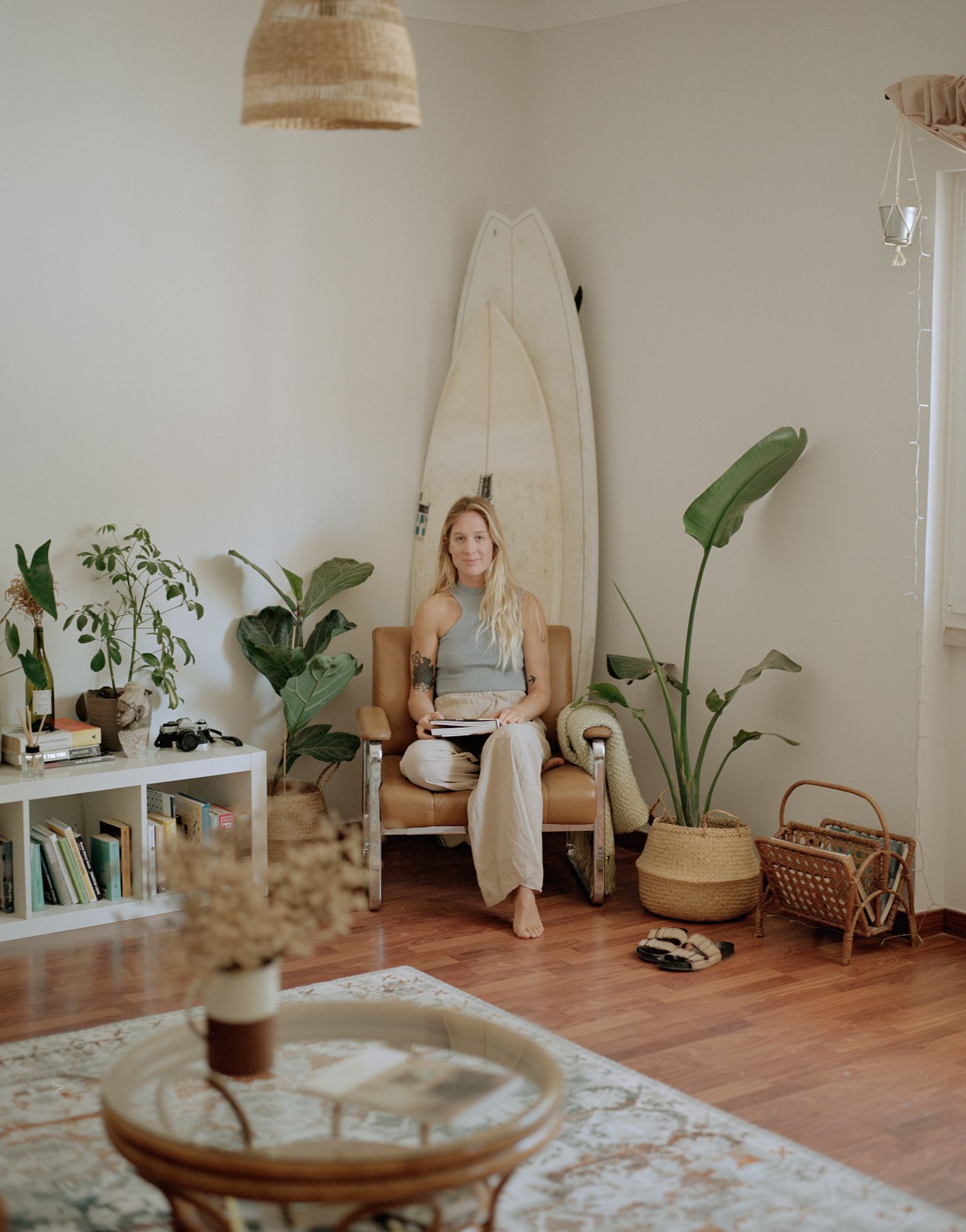
2020 was a big year for the couple, not only because of the pandemic, but they also got married in September. Their wedding was held just in the nick of time before the countrywide lockdowns in autumn, and this is how Caparica came into the picture: after the ceremony, they planned to spend a month in the small Portuguese town where they had been surfing for years—and that month turned into two years.
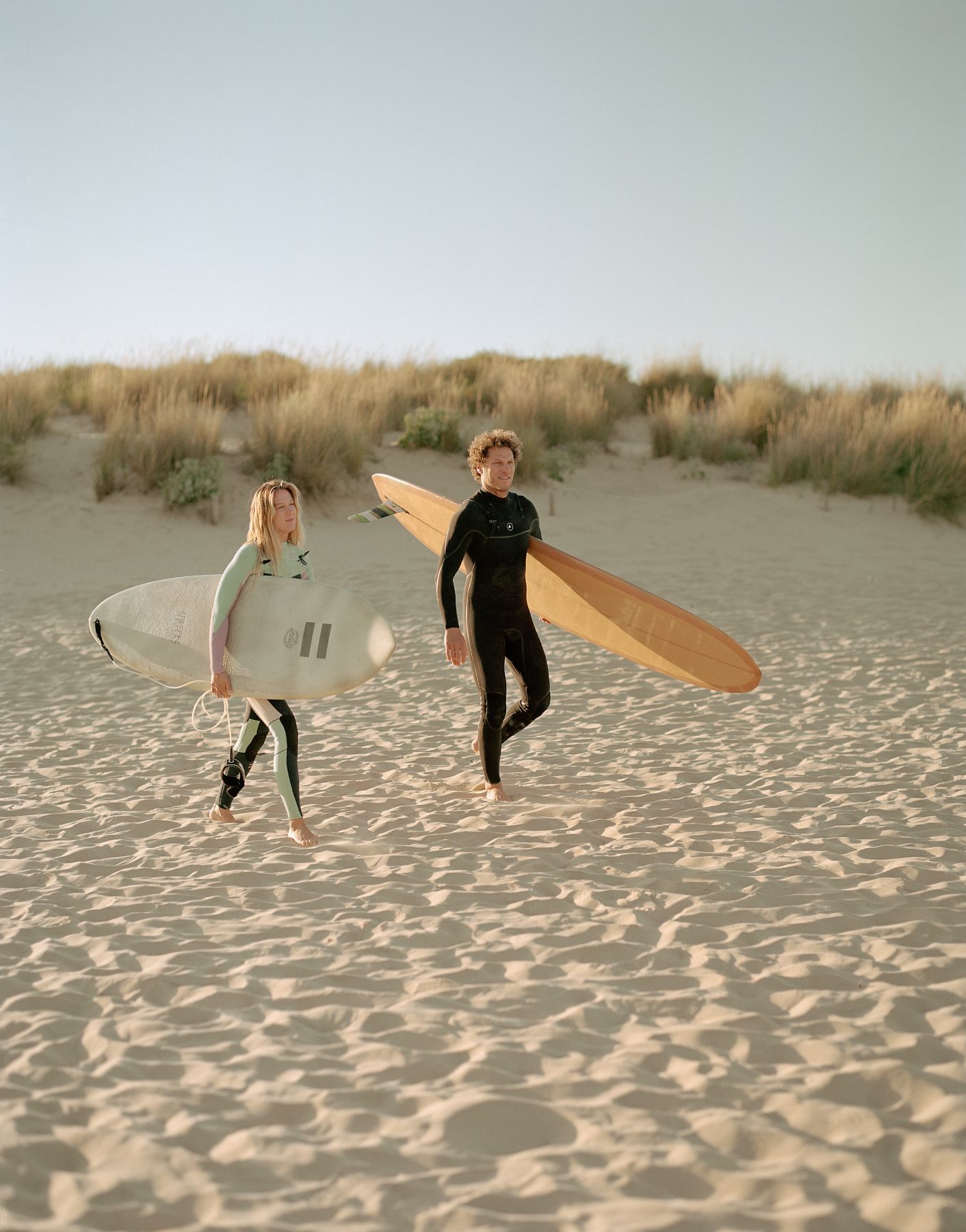
The story of Caparica was similar to that of pizza: the opportunity to make a big move came organically. Covid slowed down office work, and Anna had been thinking about trying freelancing instead of agency work, while David had always wanted to live in a place where he could surf every day. A friend’s apartment had just become available for long-term rent in Caparica, and after their first month, they decided to stay. The couple wanted a quality change in their lives, and for them, this was already guaranteed by the proximity of the ocean alone. The change of physical location also opened up new perspectives mentally, and both Anna and David said that this new point-of-view brought along fresh ideas and spiritual well-being.Of course, this didn’t happen overnight, it took the couple almost a year to realise that they weren’t just on a long holiday, but that the resort town had become the place they called home. And the change was enormous: after switching up mornings spent in traffic jams and hunting for parking spaces to morning surf sessions, and their downtown office to an oceanfront remote office spot, they couldn’t imagine living in a big city again.
Besides building the Blitz brand, Anna continues to work with Hungarian clients as a marketing manager, and this professional connection, as well as her family and friends, will always keep her connected to Budapest, but the couple still plans their future together in Portugal. When they feel the urge to experience the big city life, Lisbon is only 20 minutes away, where they’re already recognised locals, but more often than not, it’s the 16-degree ocean that lures them in so they head to the nearest, secluded dune beach to ride the waves undisturbed, and Csipesz, their dog, also has a space in the boot between the surfboards.
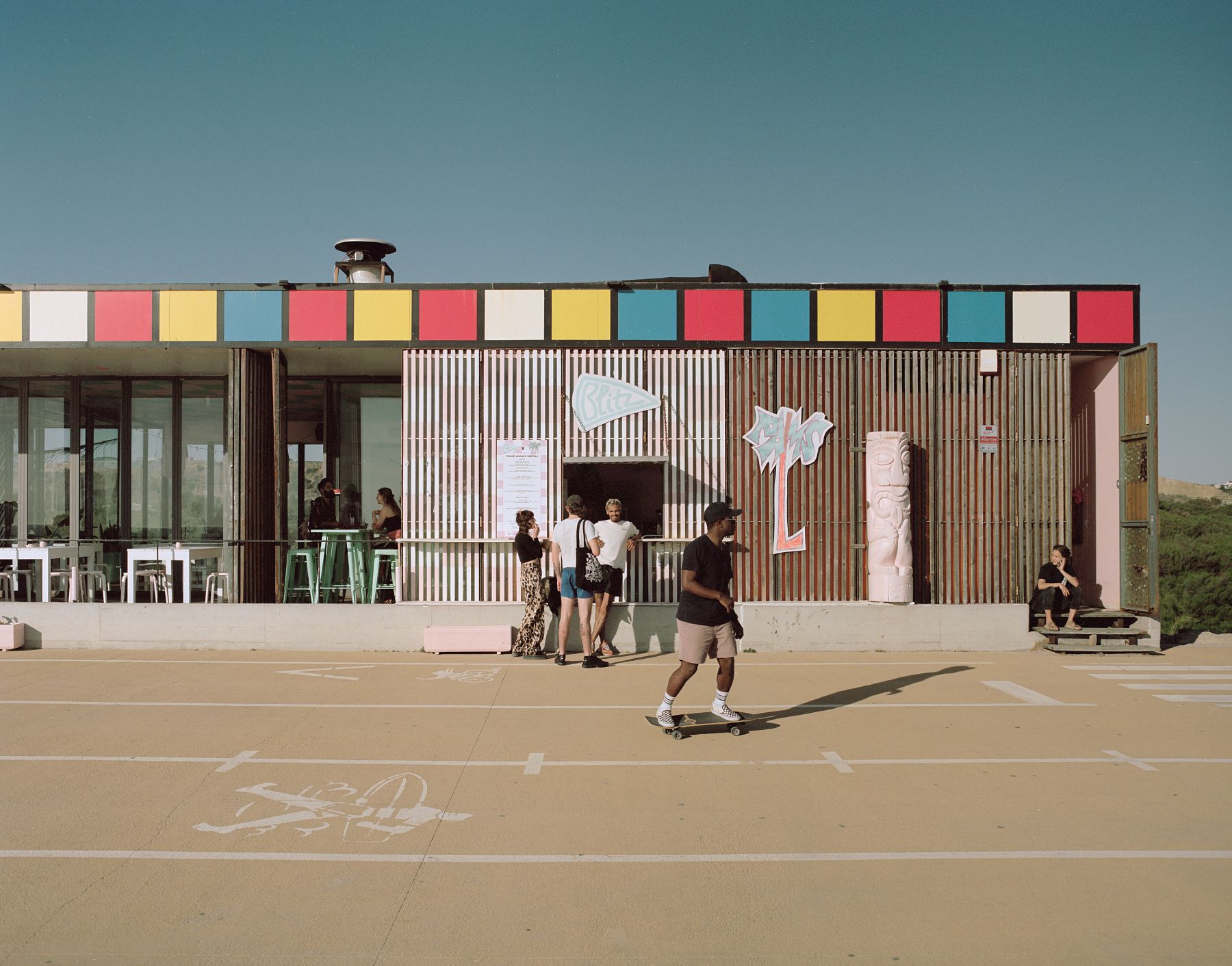
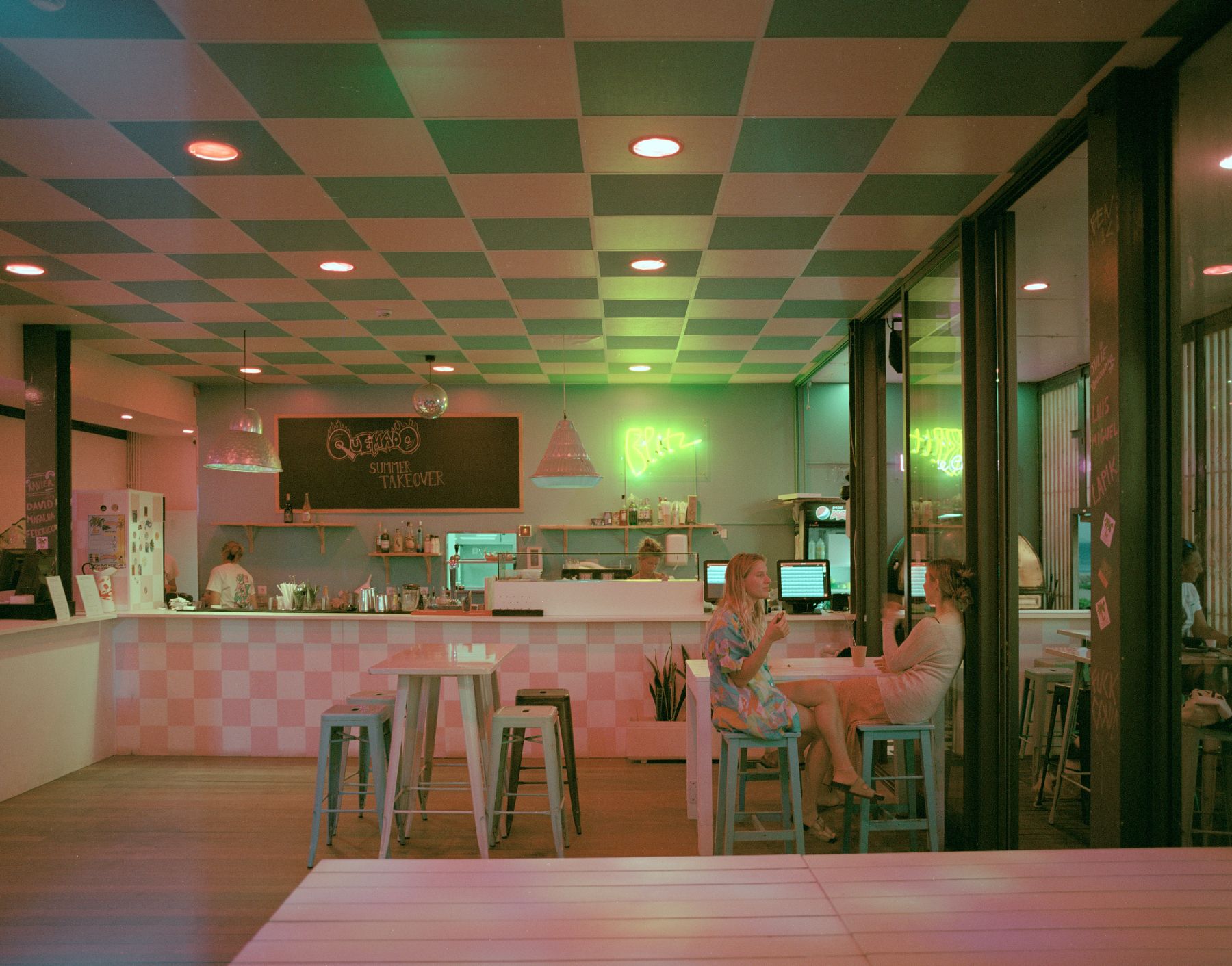
Costa da Caparica is a real beach town, but not your typical gem on the Portuguese coastline—the special atmosphere is created by the high-rise vacation homes built for the working class in the 1960s and 1970s—it’s a bit like the edge of the Eastern Bloc beckoning on the majestic Atlantic coast. The city is separated from the coast by a nearly 3 km long promenade that serves as a multi-lane highway for skaters, longboarders, runners and people walking their dogs, while the side of the concrete road facing away from the ocean is lined with restaurants and cafés, offering plenty of opportunities for the investors and creative professionals gravitating towards the area. Caparica’s quirky eclecticism is what draws many people to the area, and the municipality is experiencing a renaissance: David told us how in recent years, many young Portuguese have moved here to enjoy the closeness of nature, along with many immigrants also discovering the area. Each week, a new French, Dutch, German, English, or even Hungarian person arrives, forming a strong expat community and thinking together with the locals. All these people from different walks of life inspire and support each other with their visions to start new, exciting projects bringing newfound freshness to the small town by the coast.
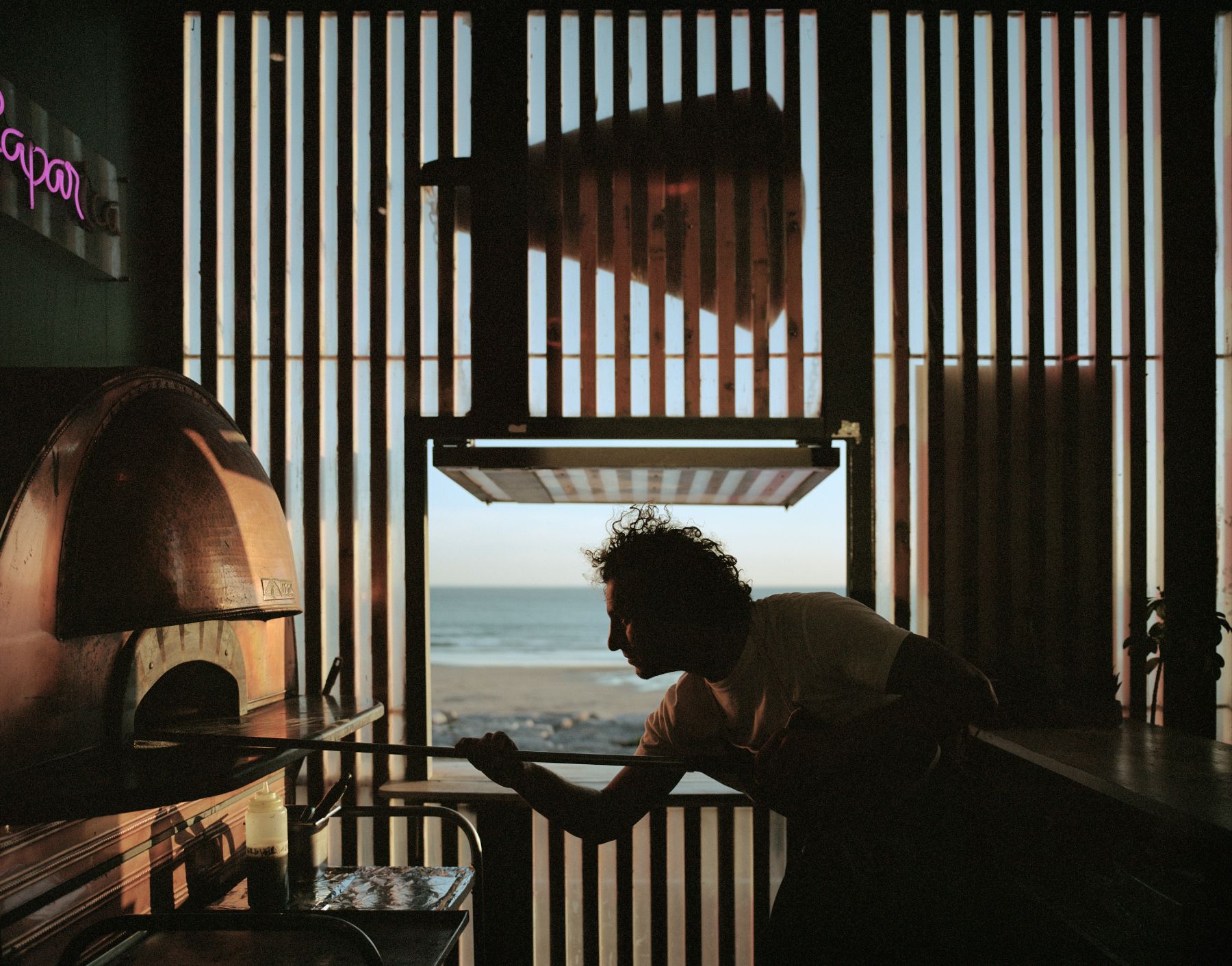
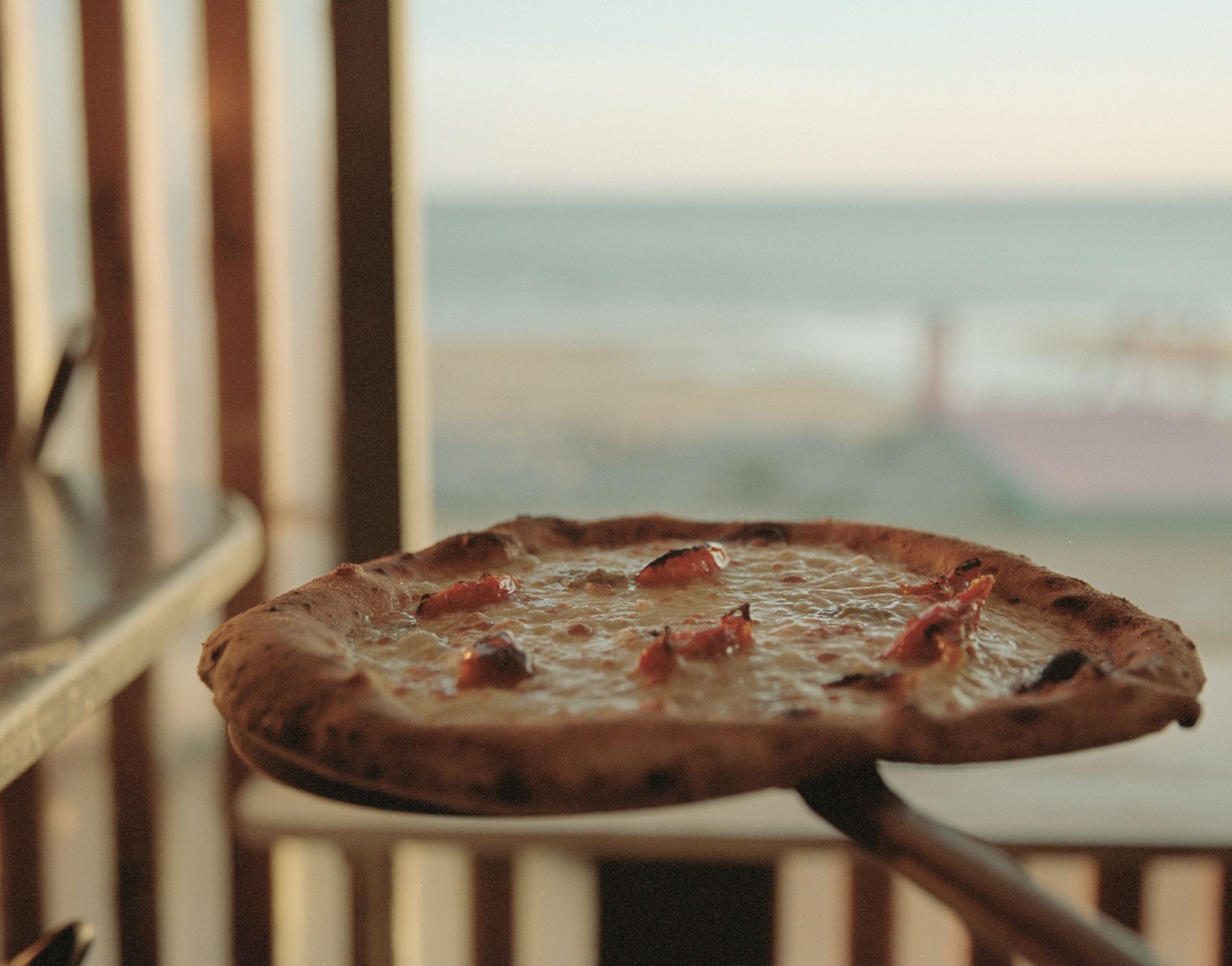
This was the community and environment that Anna and David arrived in, and it didn’t take long for them to join the efforts to lift Caparica’s reputation even further. The couple began to form deep friendships and attended birthday parties, barbecues, or surf sessions every other day. It was on one of these occasions that they met a French entrepreneur—through their Hungarian friends—who happened to be looking for catering services for his beachside restaurant. Anna and Dávid already had a complete concept, collection of recipes, team, and equipment, so they brought all they had to the table for a brainstorming session, and the collaboration quickly got off the ground. Their wood-fired oven left Hungary to take its new place on the Caparica praia, and it’s been feeding dozens of hungry stomachs after a long day spent swimming, bathing, and surfing ever since.
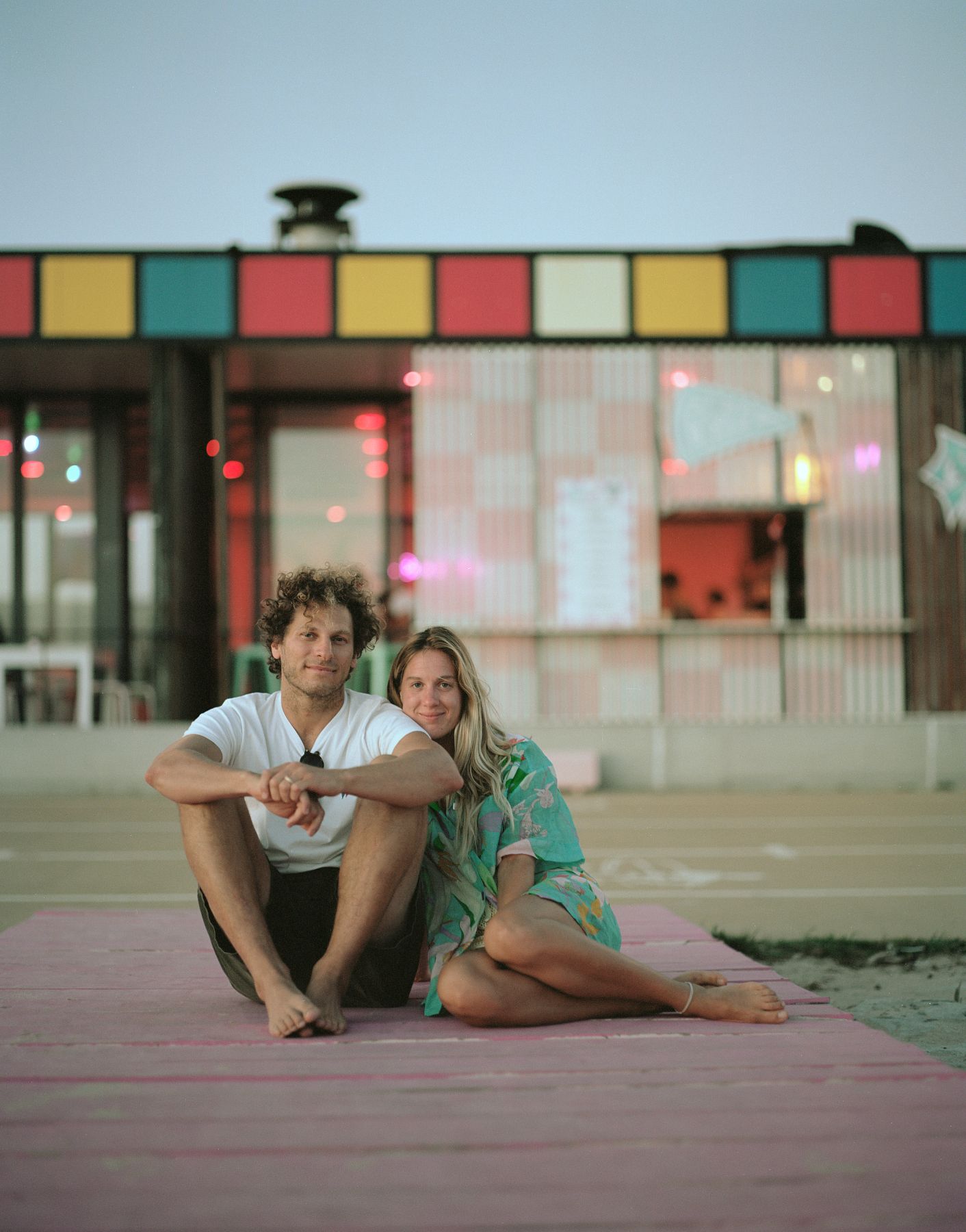
The couple has been receiving feedback just as bright as the sun glistening on surfboards, with many people travelling all the way from Lisbon to try their pizza, with food critics also popping up for visits. David is proud of their products (they offer sliced pizzas as well as a new style of Neapolitan restaurant pizzas), as they only work with the highest quality ingredients, great recipes, processes experimented to perfection and a well-rounded team they gathered for this season. The outside of the Palms (where David serves his pizza) looks like a Rubik’s Cube with Californian vibes. Inside, you can marvel at the panoramic view of the beautiful trees, and get threatened by Portuguese illustrator Wasted Rita’s illustrations: “If you drink 5 of the most expensive cocktails on the menu, the ghost of a dead nun will appear at midnight”. Let’s hope no one took the risk. In David’s experience, the customers in Caparica are more open than in Budapest, which is in part owed to multiculturalism and the opportunities created by the close proximity of the ocean, creating an atmosphere where people are more experimental with what they eat. They also have a good relationship with the local community of chefs, with both sides looking for opportunities to collaborate, organising pop-up events, and influencing each other’s cuisine. Creative ideas don’t stay unrealised for long—there’s always someone willing to help with tools, information, and knowledge to make them happen. This year, for example, building on the tradition of a previous event, the Hungarian Surf Fest will be hosted by Blitz and The Magnet Projects, also from Hungary.
Just like back at home, David aims to cook with local ingredients, although he mentions how much he misses the sausage from the Hungarian village, Újkígyós, a product he would love to introduce to Portuguese consumers. Luckily for us, the pizzas taste great even without the sausage, and as the sun begins to set on the horizon, the Palms begin to fill up quickly: groups of friends, tourists, and comfortably seated regulars enjoy the last rays of the coastal sun, drinking cocktails and eating Blitz’s pizzas.

Anna and David are like two cheerful hosts in a crowd, you can tell from a mile away that they feel at home, and they do what they do with joy, enthusiasm, and humility—whether we’re talking about surfing or making pizza. The couple are simply comfortable in their own skin. “You look out at the ocean from the side of the oven and see the sunset. That’s the good life for us. That’s truly the good life.”
Our Leaving the City series is about professionals from the creative sector who moved to the countryside—for a while or permanently—in search of a new life away from the hustle and bustle of the capital. Going behind the scenes, we’ll show you how they’ve settled into their new homes—close to Budapest or on the other side of the country in a familiar or entirely new place. We’re looking to answer the question: “is life in the countryside really as wonderful as we imagine?”
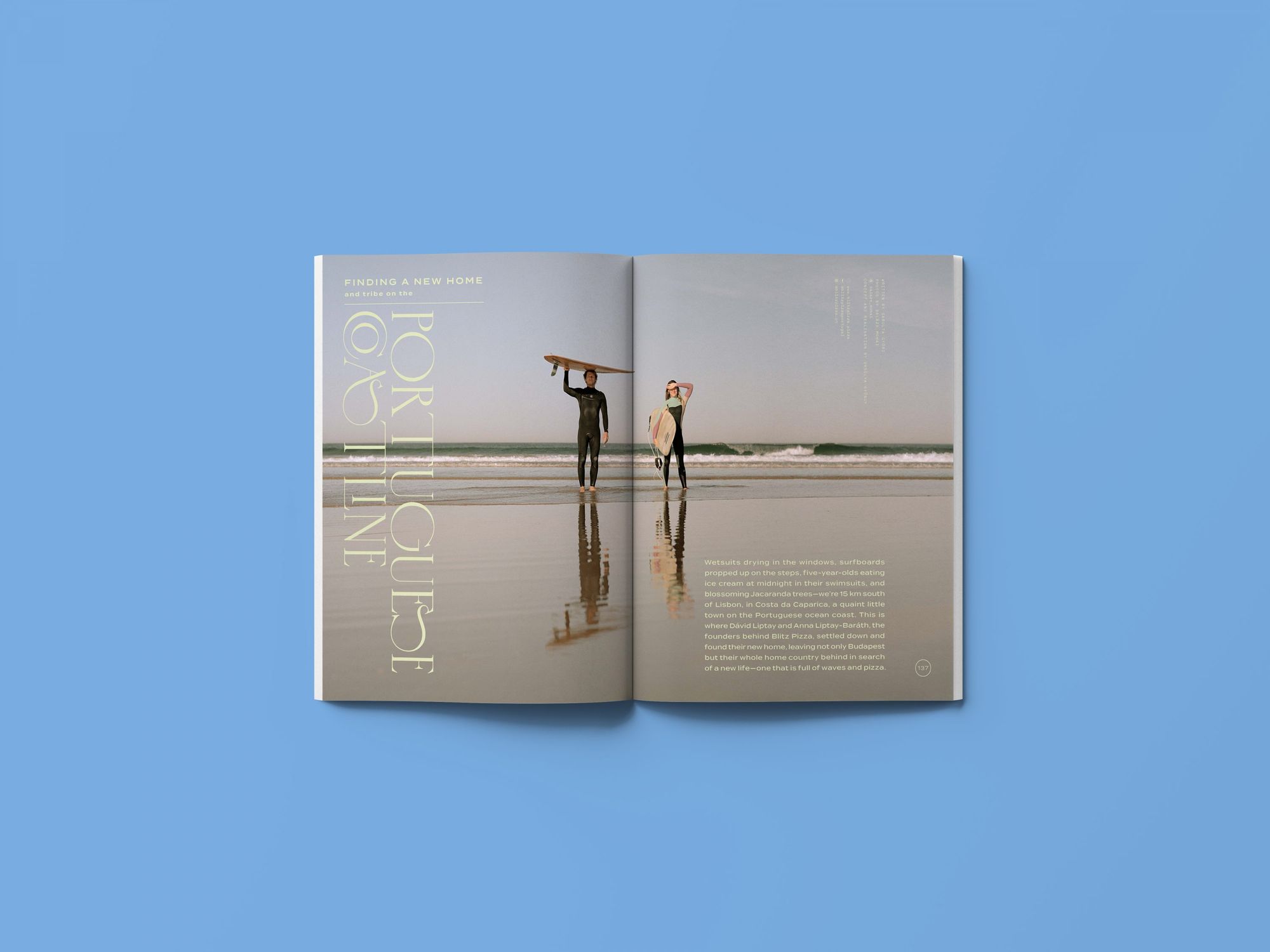
Prefer to read it in print? Order the fourth issue of Hype&Hyper magazine from our online Store!
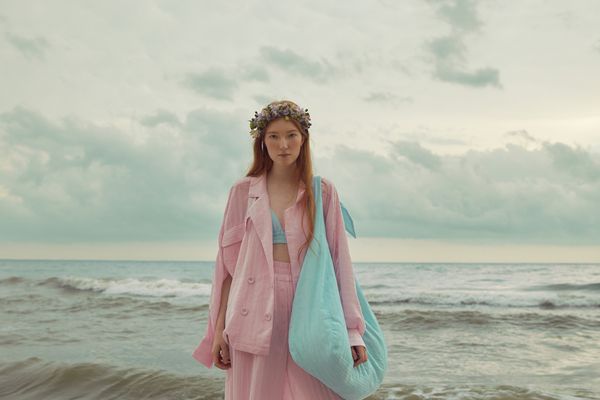
Suitcase-friendly garments in the J’amemme x Have A Rest joint collection
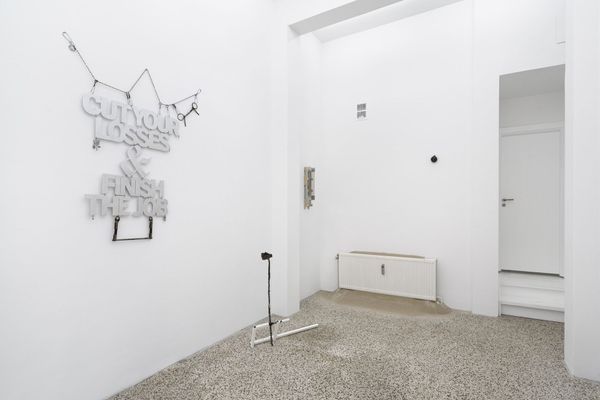
A series of art events to arrive in Prague: SUMO
